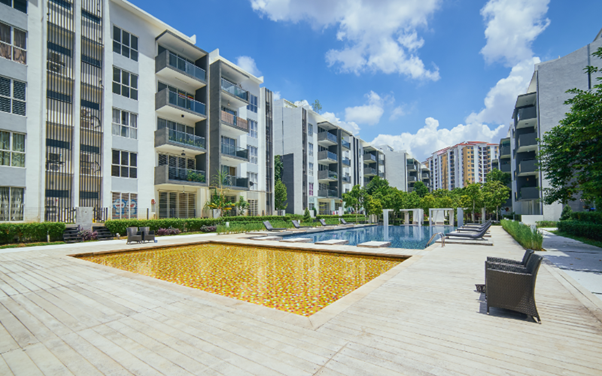As serviced apartments become increasingly popular in Singapore, several ethical dilemmas have emerged. From affordability to sustainability, these concerns impact renters, local communities, and the environment. Understanding these issues is crucial for making informed decisions about renting serviced apartments. This guide outlines the key ethical dilemmas you should be aware of when considering serviced accommodations in Singapore.
1. Affordability vs. Luxury
One of the most significant ethical dilemmas is the cost of serviced apartments in Singapore. These properties often come with premium prices due to their added amenities and services. While luxury accommodations may offer convenience and comfort, they can also contribute to a disparity in housing affordability. For individuals and families struggling with high living costs, these premium rates can be a barrier to accessing quality accommodation. Balancing the demand for high-end serviced apartments with the need for affordable housing is an ongoing challenge in Singapore.
2. Impact on Local Housing Markets
The rise in popularity of serviced apartments has implications for the local housing market. The shift towards short-term rentals and serviced accommodations can reduce the availability of long-term rental options. This trend may drive up rental prices for traditional apartments, making it more difficult for residents to find affordable housing. As more property owners convert their units into serviced apartments, there is a risk of exacerbating the housing crisis and contributing to the displacement of long-term tenants.
3. Sustainability and Environmental Concerns
Sustainability is another pressing ethical issue associated with serviced apartments. Many of these properties are designed with luxurious amenities and high standards, but their environmental impact can be significant. From energy consumption to waste production, serviced apartments often have a higher carbon footprint compared to standard housing options. Choosing an apartment with a kitchen in Singapore might offer convenience, but it also raises questions about the sustainability of such facilities.
4. Community Impact and Gentrification
The proliferation of serviced apartments can also contribute to gentrification, which involves the transformation of neighbourhoods through the influx of wealthier residents. While gentrification can bring economic development, it can also displace lower-income residents and alter the character of local communities. The presence of serviced apartments in traditionally affordable areas can accelerate this process, leading to increased property values and rent prices.
5. Transparency and Fair Practices
Transparency in pricing and rental practices is crucial for ethical renting. The cost of serviced apartments in Singapore can vary significantly, and potential tenants may face challenges in comparing prices and understanding what is included in their rental agreement. Ensuring that all costs are clearly outlined and that renters are fully informed about the terms and conditions of their lease is essential for fair practices. Ethical concerns arise when there is a lack of transparency or when tenants are subject to hidden fees and charges.
6. Cultural and Social Considerations
Serviced apartments cater to both local and international renters, but they can also create cultural and social dynamics that raise ethical concerns. The influx of transient tenants into local communities may affect the social fabric and cultural cohesion of neighbourhoods. Additionally, the focus on high-end amenities and luxury can sometimes overshadow the needs and preferences of residents.
7. Regulatory and Legal Issues
Finally, regulatory and legal issues surrounding serviced apartments must be considered. Different regions may have varying regulations regarding the operation and management of serviced accommodations. Ensuring that all serviced apartments comply with local laws and regulations is vital for maintaining ethical standards. Unregulated or non-compliant properties can contribute to legal disputes, safety concerns, and unfair competition in the rental market.
Conclusion
Renting serviced apartments in Singapore presents several ethical dilemmas, from affordability and sustainability to community impact and regulatory compliance. Being aware of these issues allows renters and property managers to make more informed decisions and contribute to a more equitable and sustainable housing market. By addressing these ethical concerns, stakeholders can work towards a rental landscape that balances luxury with fairness and responsibility.
For more information about ethical renting practices and serviced apartment solutions, contact Aurealis Serviced Residences today.







